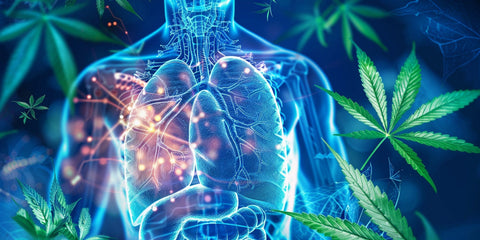The use of cannabidiol (CBD) has increased in popularity due to its potential therapeutic effects for various health conditions. However, as interest in CBD continues to grow, concerns regarding its safety and long-term impact on vital organs like the liver have taken center stage. This article will delve into the existing research about how CBD might affect liver function, balancing both the positive aspects and the potential risks.
Overview of CBD and Its Role in Promoting Health
Cannabidiol is a naturally occurring compound found in cannabis plants. Unlike tetrahydrocannabinol (THC), another well-known cannabinoid, CBD does not produce psychoactive effects or give users a "high." Instead, it is praised for its ability to help with a wide range of health issues, including pain management, anxiety relief, reducing inflammation, and even improving sleep quality.
Many studies support these claims, while others suggest that more research is needed to understand the full extent of CBD's effects on the body and its interactions with other medications. To better gauge the possible advantages and disadvantages of using CBD, we must first take a closer look at its impact specifically on the liver.
The Liver: A Key Player in Our Body’s Health
The liver is an essential organ responsible for many critical functions, such as filtering blood, detoxifying chemicals, metabolizing drugs, and synthesizing proteins. Any disruption to its functioning can lead to serious health problems, making it crucial to maintain a healthy liver through a balanced diet, exercise, and avoiding harmful substances.
Studies Investigating CBD’s Impact on Liver Function
Given the liver's important role in drug metabolism, some researchers worry that the increasing use of CBD products could lead to potential liver damage. A few animal studies have indicated that high doses of CBD may cause elevated liver enzymes, a sign of inflammation and injury.
However, it's essential to consider that these studies often focused on excessive doses in short periods – amounts that the average user would not consume. Therefore, more research is needed to determine if these risks apply to regular CBD use at recommended dosages for humans.
Conversely, several other studies suggest that CBD might offer benefits to the liver due to its anti-inflammatory properties. Some studies indicate that CBD helps protect the organ from oxidative stress, which can contribute to liver disease progression. In addition, researchers have observed potential hepatoprotective effects in patients with alcoholic liver disease and non-alcoholic fatty liver disease.
Taking Precautions: Factors That Can Influence CBD's Effect on Liver Function
With conflicting evidence surrounding CBD's impact on the liver, taking precautionary measures is important when using these products. Several factors can influence how an individual's liver reacts to CBD, such as:
- Dosage: Higher doses of CBD might be linked to increased risk of liver toxicity or injury. Still, there is no consensus on what constitutes as a "high dose" for different individuals at varying stages of genotid health. Consulting with a healthcare professional before starting CBD use is always advisable.
- Mode of administration: Different forms of CBD administration (e.g., oral consumption, vaping, topical application) may result in unique metabolic pathways and variable impact on liver function. Additionally, bioavailability varies significantly between methods, making it difficult to predict precise dosage levels.
- Interactions with medications: CBD has the potential to interact with various pharmaceutical drugs, affecting their metabolism and efficacy. Individuals taking prescription medications should be cautious when adding CBD to their regimen, as it may alter drug potency or cause unanticipated side effects.
By keeping in mind these factors, individuals considering CBD use can make more informed decisions regarding appropriate consumption levels. In addition, closely monitoring one's liver health and seeking professional guidance if any adverse symptoms arise is always a prudent course of action.
What Experts Say About CBD Use and Liver Health
Although the existing research provides mixed conclusions on how CBD may affect the liver, many experts in the medical community agree that the potential benefits often outweigh the risks for most users at appropriate dosage levels.
Several doctors and medical professionals have issued statements expressing that moderate, responsible use of CBD products might help with managing various ailments without posing significant risks to liver health. Some even suggest that the hepatoprotective properties of CBD may ultimately prove to be an advantage for certain patients.
However, they stress the importance of consulting with a healthcare provider before starting or changing our CBD regimen, particularly for individuals who are pregnant, nursing or have pre-existing liver conditions.
Striking a Balance: Continuing the Conversation about CBD and Liver Health
The current body of research into CBD's impact on liver function consists of both promising findings and cautionary tales. While some studies point to potential liver damage from excessive doses, other evidence suggests that CBD might offer protective benefits against certain liver diseases. As a result, finding the right balance between risk and reward is vital for consumers and healthcare providers alike.
Moving forward, further clinical trials and long-term studies are needed to fully understand the scope of CBD’s potential effects on the liver and provide actionable guidance for safe usage among different populations. Until then, approaching CBD intake with caution and seeking professional advice remains the best course of action for individuals interested in exploring this natural remedy.



